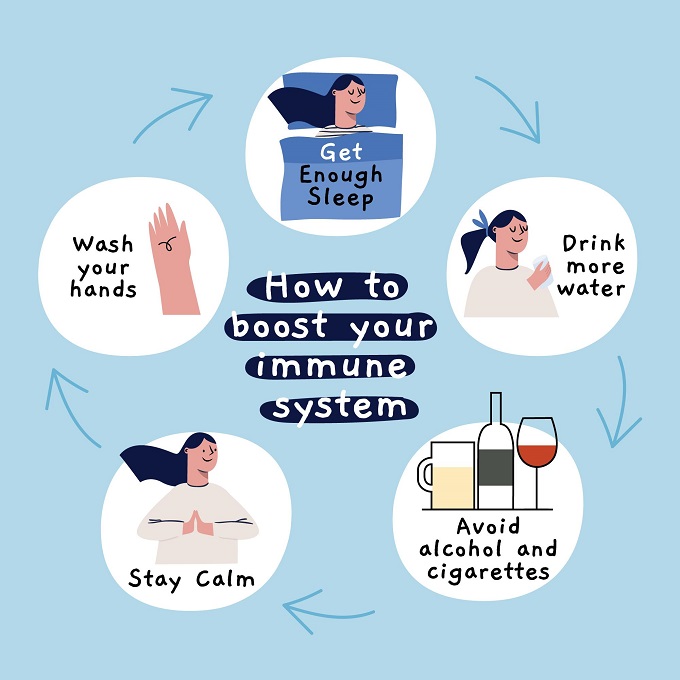Living a strong, healthy, and satisfied life can be challenging even in normal circumstances, but for people diagnosed with chronic long-term diseases, it can be hard to find the right motivation. These ailments include but are not limited to arthritis, diabetes, asthma, cancer, and depression, to name a few. Chronic cardiovascular, respiratory, and kidney ailments are also examples of long-term illnesses. And while these ailments are a part of life for many people, they don’t mean that a person should miss out on the opportunity of living their best life.
In the US, approximately 157 million people are living with ongoing illnesses. This translates to more than 40% of the overall population. Of these people, 9.6% have multiple chronic conditions, according to the CDC and Behavioral Risk Factor Surveillance System. Hawaii is the healthiest US state, with 5.6% of the population having multiple ailments, while West Virginia is the least healthy, with 18.1% suffering from three or more diseases. North Carolina lies somewhere in the middle, with 10.1% of the residents suffering from multiple long-term illnesses.
Still, the pertinent question remains. How does one live life to the fullest despite the burden of a long-term illness making it hard for them? Here are some things that can help:
1. Read as much as you can about your condition
Research is one of the first steps to living well with a long-term illness. For some people, their conditions can be associated with local incidents like long COVID, radiation poising from nuclear accidents like Chernobyl or the Camp Lejeune water contamination in North Carolina. In many of these cases, the responsible authorities can be sued for damages, and if you are a resident of North Carolina, you can look up lawyers for Camp Lejeune water contamination as part of your research.
Still, whether there is legal action and resulting financial settlements or not, finding everything there is to know about your condition helps you sufficiently with how to care about it. Although certain ailments limit physical movement or mental capabilities, it doesn’t have to mean that life comes to a standstill or you need to harbor negative feelings. Thanks to technology, you can overcome a lot of obstacles and research will help you determine these breakthroughs.
One thing to be careful about is that you need to limit the research to reliable sources only. As helpful as the internet is, the information on it can be misleading and confusing at times. Stick to government or reliable websites for your reading, and even if you come across information that concerns you, cross-check it with your doctor to verify its accuracy and relevance. This step can prove extremely useful in helping you navigate your way through life with the illness that you have and enabling you to enjoy a more content life in the process.
2. Build a support system
Living with a long-term illness is not easy. There are many times when people lose hope and give up. At these low points in life, having friends and family members that support you unconditionally makes all the difference. Many times, patients don’t find it in themselves to continue with life normally because their heart and mind don’t seem to have the strength to go on. It is in these instances that well-wishers can come to the rescue.
It doesn’t matter if your support system consists of just one person or your entire family and social circle. Of course, the more, the merrier, but even a single person can lift your spirits by giving you hundreds of reasons not to give up. The positive energy this person or group brings to your life elevates your mental capability significantly, and research has shown that once the mind is willing, the body can perform wonders.
3. Have a positive mindset
There are numerous examples not just around the world, but even around us where people are able to overcome extreme physical exertion only because of their mindset. Take military personnel or athletes, for example. They train beyond the limits, which seem reasonable for a normal individual, but they are able to go beyond only because they have the passion that tells their mind not to throw in the towel, no matter how hard the conditions.
This analogy applies to people living with long-term illnesses as well. There is a growing cache of research that shows how negative thoughts lead not just to chronic stress, but a host of other physical and mental ailments. These, together with the condition you already have, make you fall ill more often and not enjoy the best moments in life. This is why experts from the field stress the need for patients to find reasons to be happy and embody a positive state of mind.
4. Build better habits
Better, healthier habits are a direct result of a positive mindset. There is no denying the fact that bringing yourself into that frame of mind is the hardest, but it pays substantial dividends for you, especially in the long run. Whether you do it with the support of friends, family members or support groups, once you build that positive outlook, you can focus on adopting habits that come with it. This is where life takes a beautiful turn for you.
“Better” habits for someone living with a long-term illness can vary. Of course, eating healthy and exercising regularly are constants, but beyond that, you can decide on the habits that make you happy and content. Whether it is reading, writing, traveling, exploring, or even something more adventurous, you can cultivate those habits to eliminate ill health and regrets from your life. You need to be able to cherish each moment in your life without the thought of your condition holding you back.
Conclusion
There are millions of people around the world living with long-term illnesses. This not only means that you are not alone but also signals that there are others who are living life to the best of their abilities despite obstacles. Living with a chronic ailment doesn’t mean that you can’t live a great and happy life. All you need to do is get the right mindset going. Do your research about your condition and figure out your limitations and how modern technologies can help you overcome these. Then, simply go out there and live well to the extent that your heart is full and satisfied.








